The Flying Dutchman (1964)
Género : Música, Drama
Tiempo de ejecución : 1H 41M
Director : Joachim Herz
Sinopsis
A surrealistic adaptation of Wagner's opera.

In the depths of the Rhine, the three Rhinemaidens guard the Rhinegold, a treasure of immeasurable value. The Nibelung dwarf Alberich is dazzled by the sight of it. The girls explain that whoever wins the gold and forges it into a ring will gain power over the world, but must first renounce love. Frustrated by his unsuccessful attempts to catch one of the girls, Alberich curses love and steals the gold. Wotan, lord of the gods, is reproached by his wife Fricka: he has promised to give Freia, goddess of youth, to the giants Fasolt and Fafner in return for their building a fortress for the gods. When the giants demand their reward, Loge, the god of fire, suggests an alternative payment: the ring Alberich has forged from the Rhinegold, and his other treasures. The giants agree, and Wotan and Loge leave for the Nibelungs’ underground home.
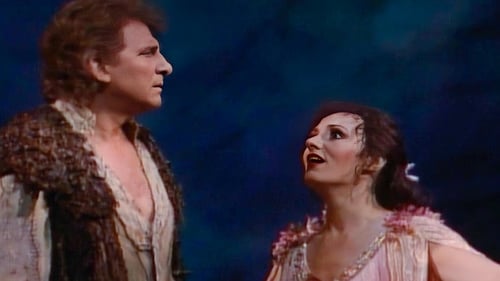
The Met production easily has the most beautiful staging, designed by Otto Schenck, who also produced the fabulous set for the Met's previous Ring cycle. Kurt Moll is a wonderful Gurnemanz, but compared to his studio recording under Karajan a decade earlier it has lost some of its original velvety body and luster. As Parsifal, Jerusalem is starting to show some wear and tear on his voice at the Met in 1992 as opposed to his prime form at Bayreuth in 1981, but is still quite good; only Placido Domingo could compete with him in the role at that time.

This performance of the Richard Wagner opera Logengrin was filmed in high definition for the Bayreuth Festival in 2011, and features vocalists like Georg Zeppenfeld, Klaus Florian Vogt, and Anette Dasch in the leading roles.

En abril de 2017, un gran ojo brilló sobre el escenario del Festival de Pascua de Salzburgo. Formaba parte de la reconstrucción de la ópera de Wagner "Die Walküre", que Herbert von Karajan había desarrollado él mismo para Salzburgo 50 años antes. Con motivo del aniversario de esta actuación legendaria, la élite de Wagner de nuestro tiempo se reunió para recrear la visión del teatro musical de Karajan de 1967 bajo la dirección de Christian Thielemann. Contigo. a. Georg Zeppenfeld, Anja Harteros, Peter Seiffert, Anja Kampe y Vitalij Kowaljow no dejaron nada que desear en términos de voz, y Christian Thielemann es el director que generalmente se dice que se acerca más al antiguo concepto de sonido de Karajan en la actualidad.

Narra la historia real de Florence Foster Jenkins, una mujer que, al heredar la fortuna de su padre, pudo cumplir su sueño de estudiar para ser soprano. El problema era que carecía de talento, pero la gente acudía a sus recitales para comprobar si de verdad era tan mala cantante como decían los críticos.

Music & Musicals, Opera & Operetta, Classical Music - Witness the Zurich Opera's stunning production of Richard Wagner's masterpiece "Tannhauser," conducted by Franz Welser-Most and featuring Peter Sieffert (Tannhauser), Solveig Kringelborn (Elisabeth) and Thomas Hampson (von Eschenbach). Initially produced in Dresden in 1845, "Tannhauser" instilled a sense of wonder in a few of Strauss's ardent friends and admirers, among them Robert Schumann and Franz Liszt. Opera buffs will love it.

TANNHÄUSER UND DER SÄNGERKRIEG AUF WARTBURG is a grand opera by Richard Wagner in three acts. After experiencing boundless sensuality and freedom with the fun-loving Venus (soprano), the singer Tannhäuser (Tenor) finds it impossible to conform to the cultured setting of his betrothed Elizabeth (soprano), who loves him. During a singing contest, Tannhäuser describes the affair with Venus as the ultimate love experience and because of that, he is cast out from the established society. Thanks to Elizabeth's intervention, he is allowed to undertake a pilgrimage to the Pope to ask for the Holy Father's pardon. If the Pope accepts to forgive him, he would be allowed to take back his place in society. Tannhäuser accepts. But fate will not allow him to meet with his beloved Elizabeth again in this life. This is a recording of the legendary staging by Götz Friedrich for the 1978 Bayreuth Festival conducted by Sir Colin Davis.

The life and work of stage designer ADOLPHE APPIA, originator of the most profound agitations in contemporary theatre. Through the dynamic alternation of animated drawings and choreographies specially conceived for the film, we discover the steps of his artistic evolution.

This vivid film of Wagner's romatic opera succeeds in conveying what has famously been called "the wind that blows out at you whenever you open the score", including Daland's boat anchoring against the Sandwike cliffs, the red-sailed phantom ship, and the ghost crew rising from the dead. "Scenes that recall classic horror films... Brilliantly successful" (Nürnberger Nachrichten), "Captures the works' essence" (Süddeutsche Zeitung). With a superb cast; conducted by Wagner authority Wolfgang Sawallisch.
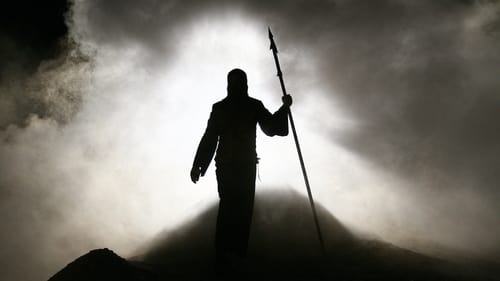
The documentary draws a portrait of an opera director who is staging Richard Wagner’s Die Walküre. He is torn between the tragicomic routine of an opera house and his own perception of Wagner and the Ring cycle. The film witnesses the director’s drama in maintaining the fragile link between a well-constructed performance and his own vision that lies within the music and the narrative, and is seen as German expressionism-like nightmares.
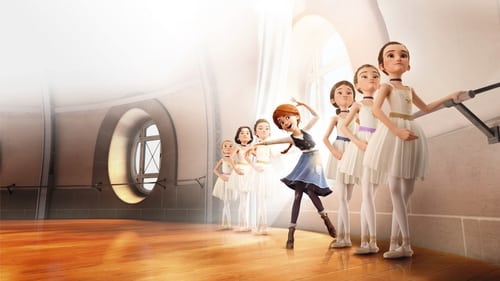
Felicia es una niña que, tras perder a sus padres, vive en un orfanato en su Bretaña natal. Su pasión es la danza y sueña con convertirse en una bailarina profesional. Para conseguirlo se escapa con la ayuda de su amigo Víctor y viaja hasta el París de 1879. Allí se hará pasar por otra persona para conseguir entrar como alumna de la Grand Opera House y así luchar por tener la vida que desea.

Segunda Guerra Mundial (1939-1945). Parodia de la ocupación de Francia por los alemanes. Terry-Thomas es un piloto inglés que se encuentra perdido en la Francia ocupada, mientras que Bourvil y Louis de Funès son dos parisinos que, casi involuntariamente, ayudan a la resistencia contra los nazis. Un film que en Francia obtuvo un enorme éxito de taquilla.
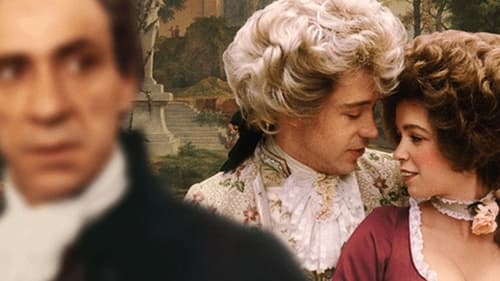
Antonio Salieri es el músico más destacado de la corte del Emperador José II de Austria. Entregado completamente a la música, le promete a Dios humildad y castidad si, a cambio, conserva sus extraordinarias dotes musicales. Pero, después de la llegada a la corte de un joven llamado Wolfang Amadeus Mozart, Salieri queda relegado a un segundo plano. Irritado por la pérdida de protagonismo, hará todo lo posible para arruinar la carrera del joven músico. Mientras tanto, Mozart, ajeno a las maquinaciones de Salieri, sorprende a todos con su genialidad como músico, pero también con sus excentricidades.
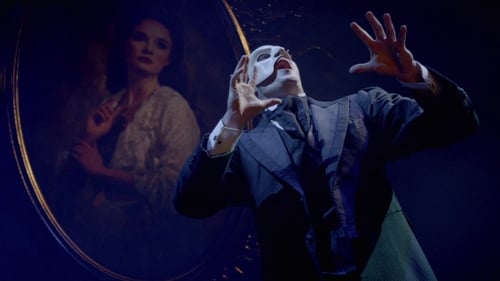
La excelencia compositiva de Andrew Lloyd Weber vuelve a deleitarnos con una nueva obra musical considerada la secuela de la célebre 'El fantasma de la ópera'. La hermosa y talentosa Christine Daaé y el misterioso enmascarado, se reencuentran.
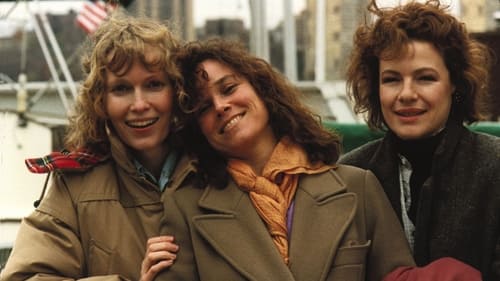
La hija mayor de una pareja de artistas, Hannah, es una esposa devota, madre cariñosa y actriz de éxito. Defensora leal de sus dos hermanas, Lee y Holly, es también la columna vertebral de una familia que parece casi tan resentida de su estabilidad como depende de ella. Pero cuando la rivalidad fraternal sabotea silenciosamente el mundo perfecto de Hannah, finalmente se da cuenta de que está tan perdida como todos los demás, y para ser capaz de encontrarse tendrá que elegir entre la independencia y... la familia sin la cual no puede vivir.
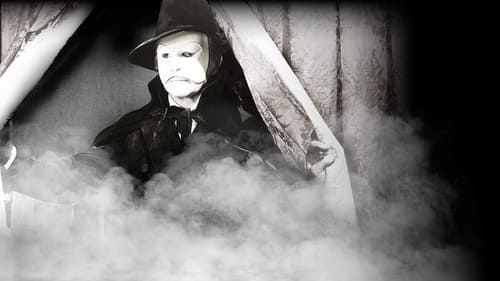
Un violinista de la Ópera de París, locamente enamorado de Christine Dubois, una joven aspirante a soprano, es despedido porque su mano izquierda ya no es tan hábil como antes. Solo y sin dinero, después de haberlo gastado todo en pagar -sin que ella lo sepa- las lecciones de canto de Christine, decide publicar un concierto con el fin de completar la instrucción de la soprano y de hacerse famoso. Pero, a causa de un malentendido, ataca a su editor, y la secretaria de éste le desfigura el rostro con ácido. Se refugia entonces en los sótanos de la Ópera y, desde entonces, actúa como un fantasma cuya sombra amenazadora acecha en la sombra y siembra el pánico entre el público.
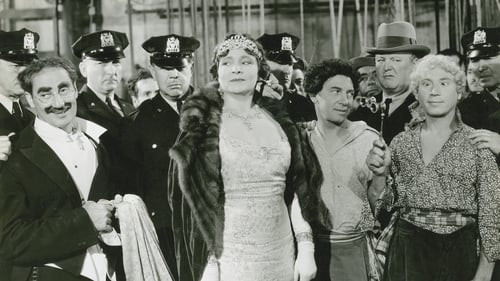
Los Hermanos Marx en la alta sociedad. A dos amantes que actúan en la ópera se les impide estar juntos porque no aceptan al hombre como tenor. Utilizando varios trucos típicos de los Hermanos Marx, logran que el tenor principal se ausente, y de esta manera el joven amante tendrá su oportunidad.
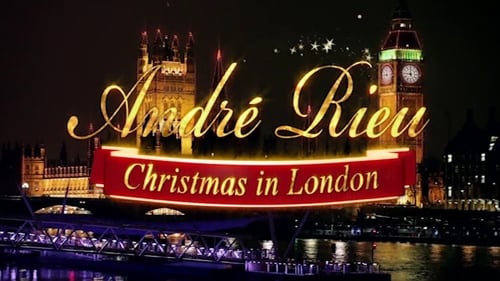
¡La Navidad es ahora más hermosa y acogedora que nunca! Vive la Navidad en Londres junto a André Rieu. Árboles de Navidad decorados por donde mires, calles bellamente iluminadas, tentadores escaparates navideños ... Combina el ambiente navideño único de Londres con un magnífico concierto navideño de André Rieu y tendrás todos los ingredientes para una fiesta encantadora en los oscuros días de diciembre. Junto a fantásticos solistas y su siempre alegre orquesta de Johann Strauss, André Rieu ofrece una velada fabulosa con los villancicos más bellos y conmovedores, pero también con canciones emotivas como Hallelujah, The Holy City de Leonard Cohen y el clásico Concierto de Aranjuez. Navidad en Londres significa una velada disfrutando de música encantadora, hermosos disfraces y mucha intimidad londinense.

La traviata (Italian: [la traˈviaːta], "The Fallen Woman"[1][2]) is an opera in three acts by Giuseppe Verdi set to an Italian libretto by Francesco Maria Piave. It is based on La dame aux Camélias (1852), a play adapted from the novel by Alexandre Dumas, fils. The opera was originally entitled Violetta, after the main character. It was first performed on 6 March 1853 at the La Fenice opera house in Venice. Piave and Verdi wanted to follow Dumas in giving the opera a contemporary setting, but the authorities at La Fenice insisted that it be set in the past, "c. 1700". It was not until the 1880s that the composer and librettist's original wishes were carried out and "realistic" productions were staged.[3]


















